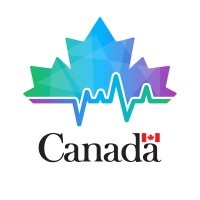
Closed
Call for projects for digital cultural development in the Canadian Francophonie
Last Update: October 27, 2025
QC, Canada
Supports digital cultural development in the Canadian Francophonie
Partnering and Collaboration
Grant and Funding
At a glance
Funding available
Financing goals
Develop employee skills
Integrate new technologies
Reduce the ecological footprint
Eligible Funding
- Maximum amount : 25,000 $
- Up to 75% of project cost
Timeline
- Receipt of requests is now closed
Eligible candidates
Eligible Industries
- Information and cultural industries
- Educational services
- Arts, entertainment and recreation
Location
- Quebec
Legal structures
- Non-profit
- Public or Parapublic institution
- For-profit business
- Non-financial cooperative
Annual revenue
- All revenue ranges
Organisation size
- All organization sizes
Audience
- Language Minorities
Non-profit candidates
Sector of operation
- Culture and Arts
- Higher Education
- Research
Target groups
- Business owners / entrepreneurs
- Artists / creatives
- Nonprofits / charities
- Academia / students
- Minority groups
Revenue structures
- All structures
Scope
- Provincial
- National
Overview
The Call for Projects for Digital Cultural Development in the Canadian Francophonie provides up to $25,000 in funding to support projects that enhance the discoverability of Francophone cultural content online, develop digital skills, and foster collaborations within the Canadian Francophonie. Eligible activities include digitization, dissemination of cultural content, skill development, and the creation or sharing of digital tools and expertise.
Activities funded
- Projects that improve the online visibility and discoverability of Francophone cultural content, such as digitization and broad dissemination initiatives.
- Initiatives aimed at developing or enhancing digital skills for artists and cultural organizations through training or knowledge transfer.
- Efforts to share resources and digital expertise by establishing or strengthening networks and partnerships with Francophone Canadian collaborators.
- Development or experimentation of new methods or tools enhancing digital cultural development, such as 3D digitization or digital content preservation.
Examples of admissible projects:
$ 99,500
Upgrading machinery to improve sustainable textile production
$ 28,000
Retrofitting storefront for accessibility and energy efficiency upgrades
$ 32,000
Launching an e-commerce platform for Indigenous artisans’ crafts
$ 22,500
Digitizing historical archives for public online access
$ 90,000
Solar panel installation at local food processing facility
$ 40,000
Developing a zero-waste meal kit subscription and distribution
Eligibility
- The applicant must have its head office in Quebec and be legally established for more than 12 months.
- The organization must be a non-profit, cooperative, for-profit company, public institution (such as a university or college), research center, or a government corporation under the Minister of Culture and Communications.
- The applicant must be registered with the Registraire des entreprises du Québec.
- The applicant must collaborate with at least one cultural partner from the Canadian Francophonie located outside Quebec.
- The proposed project must be completed within 12 months and fully contribute to the objectives and target sectors of the program.
Who is eligible?
- Non-profit legal entities (organizations and cooperatives operated for non-profit purposes)
- Cultural enterprises (for-profit organizations)
- State-owned enterprises under the Minister of Culture and Communications (such as Bibliothèque et Archives nationales du Québec, Conservatoire de musique et d’art dramatique du Québec, Musée d’art contemporain, Musée de la civilisation, Musée national des beaux-arts du Québec, Société de la Place des Arts de Montréal, Société du Grand Théâtre de Québec, Télé-Québec)
- Post-secondary educational institutions (colleges and universities)
- Research centers
Who is not eligible
- Municipalities
- Sole proprietorships (individual businesses)
- Organizations registered on the Register of Enterprises Ineligible for Public Contracts (RENA)
- Applicants that have failed to meet previous financial aid obligations to the Ministry in the last two years after formal notice
Eligible expenses
- Accommodation and daily allowances for participants in Canada (up to $200 per day per person, maximum of 7 days).
- Reasonable travel expenses within Canada, starting from or towards Quebec for project participants.
- Local transportation costs within a province or territory.
- Design, development, acquisition or adaptation costs for equipment, technology, or tools.
- Subcontracting fees and associated honoraria.
- Study costs and consulting fees.
- Interpretation and translation services.
- Dissemination, promotion, and publication costs.
- Training expenses for employees.
- Equipment or venue rental costs.
- Purchase costs for materials or equipment.
- Transport costs for materials and artworks.
- Travel insurance (up to $250).
- Production fees and copyright fees.
- Administrative fees, up to 5% of eligible expenses.
- Contingency fees, up to 10% of eligible expenses.
Eligible geographic areas
- Applicants must have their head office in Quebec.
- At least one project partner must be based in a Canadian province or territory outside Quebec (Francophonie canadienne).
Selection criteria
- Relevance of the project in relation to the program's objectives.
- Originality and innovative character of the project.
- Quality of project teams and relevance of selected partners.
- Quality, rigor, and diversity of the financial plan, including financial contributions from the applicant and Canadian Francophonie partners.
- Realism of objectives and anticipated results based on the project plan.
- Expected outcomes and impact for Quebec and the Canadian Francophonie (e.g., economic, social, cultural, visibility of the French language and culture).
- Planned visibility and promotion of the project and its results (such as publications, conferences, exhibitions, etc.).
- Potential sustainability of partnerships, the project itself, and its outcomes.
- Existence of a metadata production and dissemination strategy tailored to the project.
How to apply
- Step 1: Gather Required DocumentationComplete the Application for Financial Assistance form.
- Prepare a 250-word project summary for publication.
- Gather documents on the organization's mission, experience in cooperation with pan-Canadian or international partners, and digital expertise.
- Prepare a detailed project budget.
- Develop a project implementation timeline.
- Outline the expected results and projected impacts of the project.
- Present information on partner(s) involved and clearly describe their roles and added value.
- Collect the most recent financial statements approved and signed by the administrators.
- Include the latest activity report of the organization.
- Attach the data management plan (if applicable).
- Secure a resolution adopted by competent authorities pertaining to the request for funding and mandate authorization.
- Include CVs of the Quebec project leader and the project team.
- Obtain a letter of commitment from each Canadian Francophonie partner, confirming their participation (financial and/or services).
- Step 2: Complete Application FormFill out the required information in the Application for Financial Assistance form, ensuring all fields are completed and all sections are addressed.
- Step 3: Assemble SubmissionEnsure all required documents are complete, comprehensible, and based on accurate data.
- Double-check for completeness; incomplete applications will not be considered.
- Step 4: Submit ApplicationSend the completed application form and all accompanying documents in French by email to: culturenumerique@mcc.gouv.qc.ca
- Ensure submission is made before the deadline; late or incomplete submissions will not be considered.
- Step 5: Respond to Requests for Additional InformationIf contacted during project evaluation, provide any additional information or documents requested by the Ministère de la Culture et des Communications within the timelines specified.
Additional information
- A convention will be signed between the Government of Quebec and the grant recipient, requiring formal reporting.
- The Ministry reserves the right to terminate, modify, or reduce funding for reasons of public interest or if false or misleading information is provided.
- Final project results must be submitted within three months after project completion.
- Only one application per applicant is permitted; for higher education institutions, this restriction applies per faculty.
Contacts
culturenumerique@mcc.gouv.qc.ca
QC, Canada
Apply to this program
Frequently Asked Questions about the Call for projects for digital cultural development in the Canadian Francophonie Program
Here are answers to the most common questions about the Call for projects for digital cultural development in the Canadian Francophonie. This section explains what the program is, how much funding is available, eligibility requirements, application deadlines, and other important details to help you determine if this grant is right for your business.
What is the Call for projects for digital cultural development in the Canadian Francophonie?
How much funding can be received?
Who is eligible for the Call for projects for digital cultural development in the Canadian Francophonie program?
What expenses are eligible under Call for projects for digital cultural development in the Canadian Francophonie?
Who can I contact for more information about the Call for projects for digital cultural development in the Canadian Francophonie?
Where is the Call for projects for digital cultural development in the Canadian Francophonie available?
Is the Call for projects for digital cultural development in the Canadian Francophonie a grant, loan, or tax credit?
Apply to this program
More programs like this

Grant and FundingOpen
ÉcoPerformance — Recommissioning of building mechanical systems
Gouvernement du QuébecFunding to optimize the operation of building mechanical systems

Grant and FundingClosed
NovaScience Program - Support for projects in scientific culture and innovation
Gouvernement du QuébecNovaScience promotes scientific culture and innovation development

Grant and FundingOpen
Export and cultural visibility support program
Société de développement des entreprises culturelles (SODEC)Financing for Quebec cultural exports

Tax CreditsOpen
Tax holiday for a new business created to commercialize intellectual property
Ministère de l'économie, de l'innovation et de l'énergie du Québec (MEIE)Tax credit for commercialization of intellectual property (IP) in Quebec

Grant and FundingOpen
Additional support for the circulation of shows
Société de développement des entreprises culturelles (SODEC)Financial support for touring Quebec music and comedy shows

Grant and FundingOpen
Innovative Projects Program
Hydro-QuébecSupports innovative, energy-efficient projects for multi-building developments

Grant and FundingClosed
Addressing Racism and Discrimination in Canada’s Health Systems Program
Health CanadaSupports culturally safe, equitable health services for marginalized communities

Partnering and CollaborationGrant and FundingClosed
International Climate Cooperation Program (ICCP)
Environnement Québec (MELCC)Supports Quebec-driven climate action projects in francophone countries

Grant and FundingOpen
SODEC — Support for promotion and distribution – Component 1b
Société de développement des entreprises culturelles (SODEC)Promotes and distributes Quebecois and underrepresented foreign films

Partnering and CollaborationGrant and FundingExpert AdviceSuspended
Financial support to assess your energy use Hydro Quebec
Hydro-QuébecUp to $50,000 for energy performance analysis and optimization
Sign up to our platform to access the Call for projects for digital cultural development in the Canadian Francophonie information sheet for free
Get access to 4,000+ programs, practical guides, personalized alerts, and an AI assistant to support your grant applications.